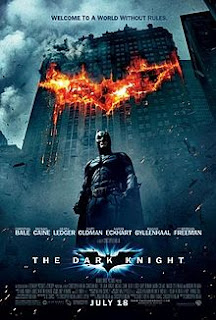RATING: A
After taking a short break from Batman to work on Inception, Christopher Nolan finally delivered us a conclusion to the Dark Knight trilogy. Final installments in trilogies in general have been infamous for being disappointing, but I for one knew that this would never disappoint--at least not as long as Christopher Nolan was still on board.
Eight years after the ending of the Dark Knight, Bruce Wayne has long retired from being the Batman and now has become a caveman of sorts in his own home. Meanwhile, crime rates have actually improved in Gotham due to the Dent Act, in memory of the fallen idol. However, a new foe arrives in the form of Bane, a gigantic guy with a breathing mask who got excommunicated from Ra's al Ghul's League of Shadows. And Bruce Wayne is also having to deal with the mysterious Selina Kyle (aka Catwoman, although she is never referred to as such in the film itself).
As noted earlier, the League of Shadows is returned to the story--in fact, this film has a lot more to do with Batman Begins than the Dark Knight did, as it wraps up the storyline. There are actually a lot of subplots involving Bruce's personal life, as well as the newest character addition in John Blake, and the falling apart Wayne Enterprises. This is quite a long movie at 165 minutes, and it admittedly does move a little slower than we're used to in these movies, which may cause some people to become jaded--especially if they were expecting a faster-paced film.
Despite that, a great plot is still being used here and if you feel the film moves slowly at some points, it'll make up for it as the last 45 minutes or so are a frenetic sequence of action and tension. Whatever the case, one should still be pleased with what they see. The quality of the film is still top-notch. Tom Hardy, Joseph Gordon-Levitt and Anne Hathaway do well in their additions to the all-star cast. Hans Zimmer delivers another brilliant soundtrack, and we get another dose of mostly excellent dialogue.
The Dark Knight Rises may bring about some more mixed feelings of sorts among watchers; that is, all should still be pleased, but some may find this the relative weakest of the trilogy due in part to its slower pacing. Even with that allowance, they'll still be hard-pressed to not like/love it when it's all said and done, and many like myself should still enjoy it just as much as the the rest of the amazing trilogy that it comes from.
The Dark Knight Rises concludes what is the greatest film trilogy of all time. Few trilogies can even compare to it--some may have one or two films that come very close, but for all three movies to deliver on a level like this? No comic-book-hero trilogy has delivered *this* well (though a couple came close), and it may never happen again--unless Christopher Nolan's directing it.






